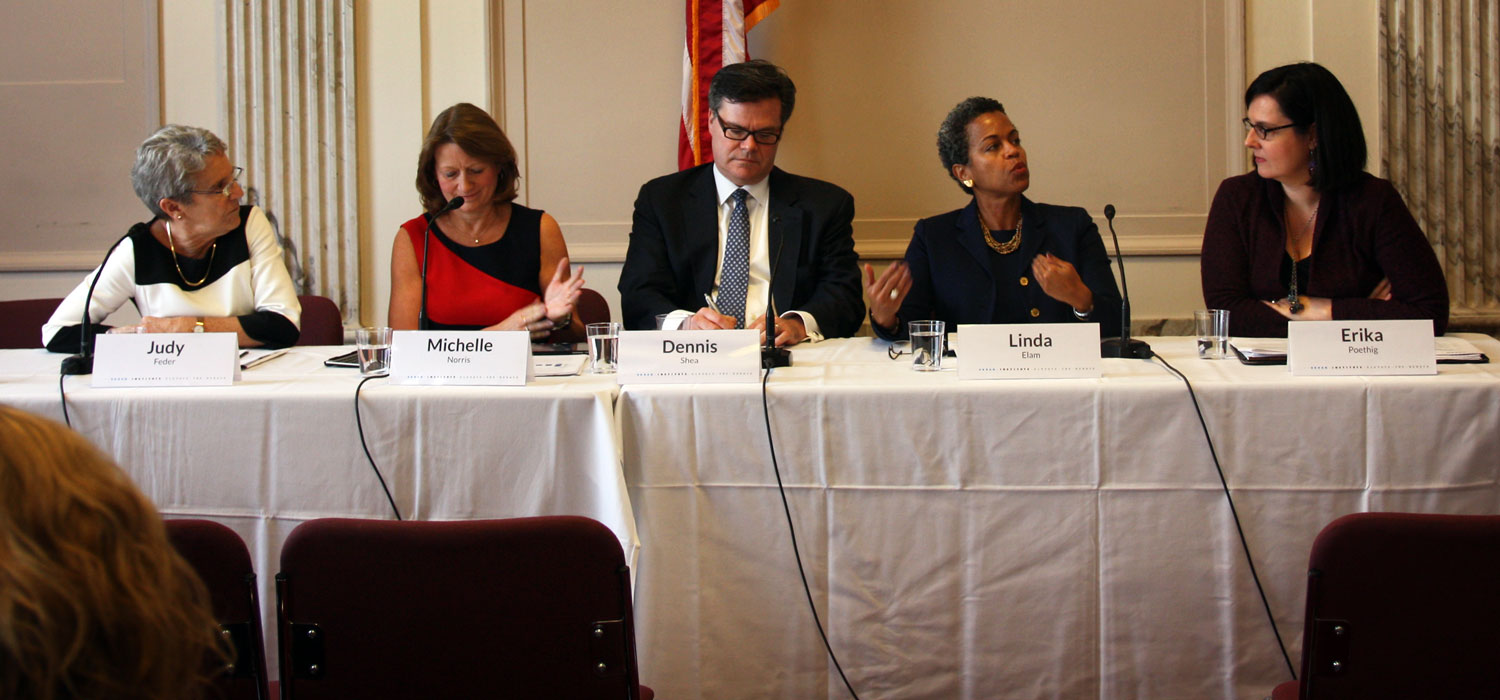
In the next 20 years, the US population is predicted to grow by 15 percent, but for seniors, that growth is much higher. The number of Americans over the age of 65 is predicted to grow by more than 70 percent and for Americans over the age of 85, by more than 90 percent. Low-income households in general will struggle to find affordable places to live; for seniors, the high costs of housing can also mean higher costs for health.
In a briefing and discussion yesterday, director of the Program on Retirement Policy Rich Johnson and a panel of experts explained to Hill staffers and stakeholders the rising concerns for the country’s retirees.
While the country has made tremendous financial gains, seniors still struggle
Though the share of older adults living in poverty has steadily declined in the last century, Johnson explained how the Census Bureau’s new Supplemental Poverty Measure that accounts for additional income and expenses shows that many more adults are living in poverty than previously thought. While the official poverty rate for seniors is about 10 percent, the new measure finds the poverty rate closer to 14 percent.
People with limited education are also far more likely to live in poverty, and while recent educational strides have helped many Americans, most occurred largely after today’s seniors were able to benefit. About 18 percent of people over the age of 65 and more than a quarter of people over the age of 85 do not have a high school diploma.
Similarly, seniors who are not married are also more likely to struggle financially, and that likelihood may disproportionately hurt women. While more than half of older women are unmarried, only a third of men are. Older African Americans, Hispanics, and adults with disabilities are also significantly more likely to have inadequate income.
The recent reinvestment in cities has sparked the idea that many older, longtime residents of revitalized areas like San Francisco or Los Angeles have benefited from rising home prices. But that concept is not actually the norm, explained panelist Linda Elam of the US Department of Health and Human Services. In fact, housing costs are a particular burden for low-income seniors with mortgages more so than rentals.
How can we better align housing and health?
In reality, housing costs are a huge financial burden for many retirees, particularly low-income seniors. Seniors’ spending on housing exceeds that of health care—with adults over the age of 65 in 2013 spending more than a quarter of their income on housing. While many retirees are able to abate their health care costs through regular health insurance, Medicare, or Medicaid, the options for housing assistance are far more limited.
The panelists discussed how better targeting health services, particularly preventative care, could generate substantial health care savings, but aligning these savings with housing assistance isn’t an easy answer, noted panelist and Institute Fellow Judy Feder.
Panelist Michelle Norris, president of the National Church Residences Development Corporation, demonstrated that the lack of housing supply is evident from her work on the ground, but a large-scale solution is less so. State programs like Vermont’s SASH and Ohio’s demonstration of managed care for Medicaid-Medicare dual eligibles are showing promise for integrating health service delivery through housing. Programs like these, or even simpler solutions like better zoning, can serve as models for policymakers of potential interventions.
For years, research has predicted the rapid growth of the senior population and corresponding housing and health needs, noted Feder. But while the urgency is only growing, the upcoming election, and the implementation of health care reform, mean the ability to actually do something about it is, too.
Tune in and subscribe today.
The Urban Institute podcast, Evidence in Action, inspires changemakers to lead with evidence and act with equity. Cohosted by Urban President Sarah Rosen Wartell and Executive Vice President Kimberlyn Leary, every episode features in-depth discussions with experts and leaders on topics ranging from how to advance equity, to designing innovative solutions that achieve community impact, to what it means to practice evidence-based leadership.